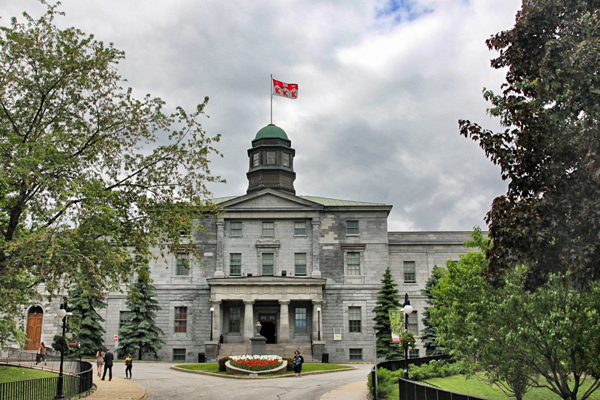 Three innovative research partnerships at McGill have received significant long-term investments from the Social Sciences and Humanities Research Council (SSHRC) partnership grants program, totaling more than $6.8 million. Each project will use novel approaches to advance knowledge and understanding on critical issues of intellectual, social, economic and cultural significance.
Three innovative research partnerships at McGill have received significant long-term investments from the Social Sciences and Humanities Research Council (SSHRC) partnership grants program, totaling more than $6.8 million. Each project will use novel approaches to advance knowledge and understanding on critical issues of intellectual, social, economic and cultural significance.
“These interdisciplinary research partnerships exemplify McGill’s community-engaged strategic vision,” said Dr. Rosie Goldstein, Vice-Principal (Research and International Relations). “With this funding from SSRHC, 112 researchers and 57 partners will work toward finding innovative solutions to some of the most pressing issues of our time.”
The SSHRC partnership grants program funds projects that foster mutual co-operation between stakeholders and that are built on sharing intellectual leadership among academic, community and business partners.
Music Professor Ichiro Fuginaga was awarded $2.5 million over seven years for a project called Single Interface for Music Score Searching and Analysis. The goal is to build tools to teach computers to recognize musical symbols in images, and assemble data on a single website, making it possible to search and analyze online musical scores for the first time.
Andrew Piper, a Professor of Languages, Literatures and Cultures, has been awarded $1.8 million over seven years to lead a project with a group of 10 literary historians from across North America that will enliven our understanding of the novel, according to new computational means; to establish the methodological foundations of a new disciplinary formation; and to train the next generation of students to be successful participants in the information economy. Seven collaborators from the disciplines of computer science, sociology, political science, geography, library and information science, and linguistics, will join the project.
Geography Professor Peter Brown has been awarded $2.5 million over six years to study the impact of human activity on the global ecosystem since the Industrial Revolution, a period scientists refer to as the Anthropocene. A diverse group of academic, government, and NGO partners will take on the challenge of investigating, teaching, and applying a new understanding of human-Earth relationships – with a specific focus on three regional, transboundary challenges: water security, energy resources, and climate justice.
